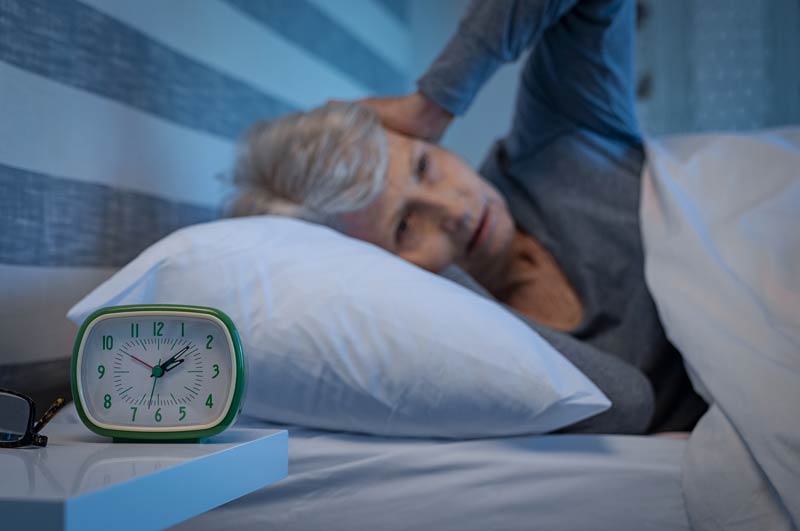
Discover strategies to overcome senior sleep concerns.
Tossing and turning. Counting sheep. Staring at the clock. If this represents a normal evening for your senior loved one, understand that he or she is far from alone. While seniors need to have at least 7 hours of sleep every night, a full 50% of all older adults report concerns with falling and/or staying asleep. Yet it’s essential to understand that although older adult sleep issues may be widespread, they are not a normal part of aging – and there are steps that can be taken to improve sleep for your elderly loved ones.
First, it’s necessary to rule out a clinical sleep disorder, which could include effects that occur routinely such as:
- Difficulty with falling asleep even when tired
- Difficulty with falling back to sleep once awakened
- Drowsiness or irritability during waking hours
- Concentration or focus struggles, or falling asleep when sitting still (such as when driving or watching TV)
- Uncontrollable emotions
- Reliance on alcohol or sleeping pills to obtain needed sleep
The physician must be consulted if a sleep disorder is suspected. For many seniors, however, there’s an underlying cause behind the insomnia. A few of the common causes of senior sleep difficulties are detailed below, together with strategies to help:
- An environment that’s not conducive to sleep. Ensure the senior’s bedroom is cool, quiet, and dark. Take out the television set and any electronics from the bedroom, and follow a regular sleep routine that includes soothing music, a warm bath, reading, or any other comforting activities, followed by a set time to go to bed each night.
- Medication side effects. Review any medicines – both prescription and non-prescription – to find out if sleep disruptions may occur, and then talk with the senior’s physician about whether any medication adjustments are warranted.
- A sedentary way of life. Remaining as active as possible through the day can make a big difference in the senior’s ability to experience a better night’s sleep. Encourage your senior loved one to enroll in an exercise class, take a daily morning walk, or join a local pool and commit to swimming each day (all with the physician’s approval).
- Chronic disease complications. Diseases such as Alzheimer’s, diabetes, osteoporosis, and others can lead to senior sleep disruptions. Consult with the senior’s physician for recommendations.
- Post-menopause. It’s common knowledge that the hot flashes often experienced in the course of menopause can impede sleep, but hormone-related sleep disturbances can continue after menopause too. The lifestyle adjustments outlined above might help.
At-Home Care Company provides senior care in Des Moines, IA and the surrounding areas, and we can help with older adult sleep issues in a number of ways. Reach out to us at 515-292-2650 to request a free in-home assessment and to learn more about how to care for aging parents. And visit our Service Area page to find out if our personalized home care services for seniors are available in your area.
